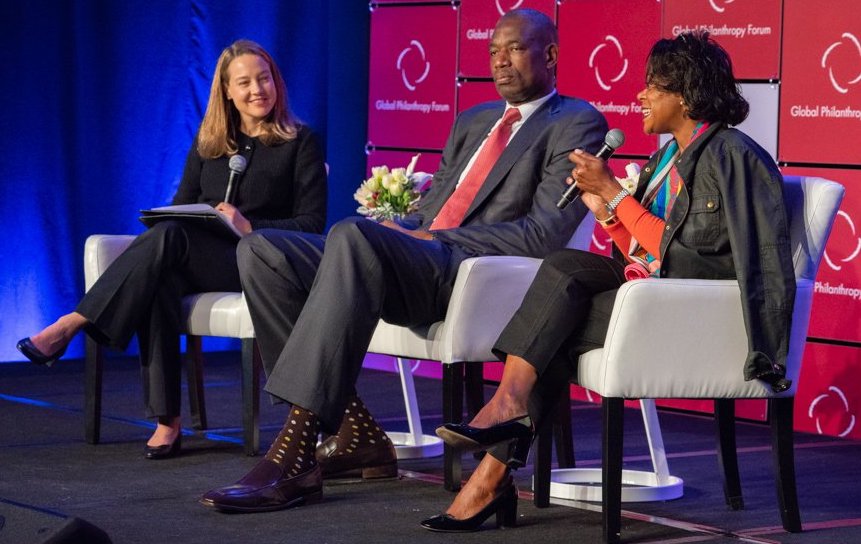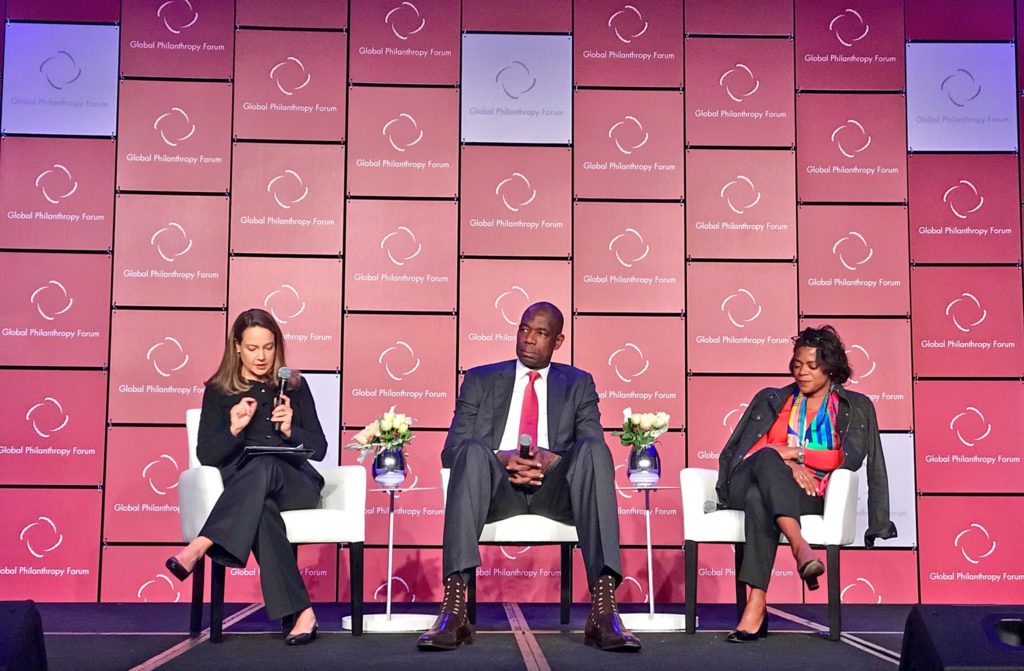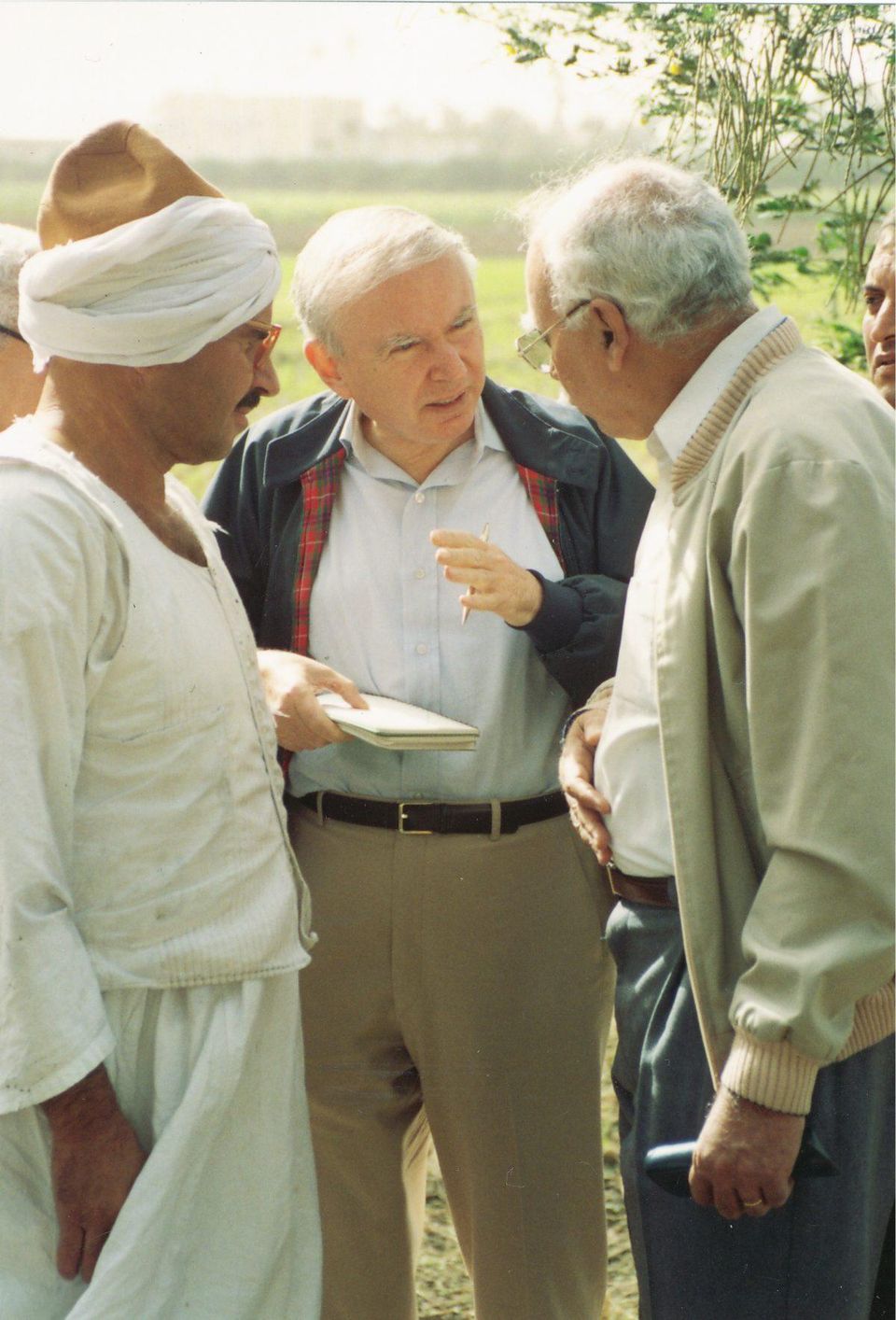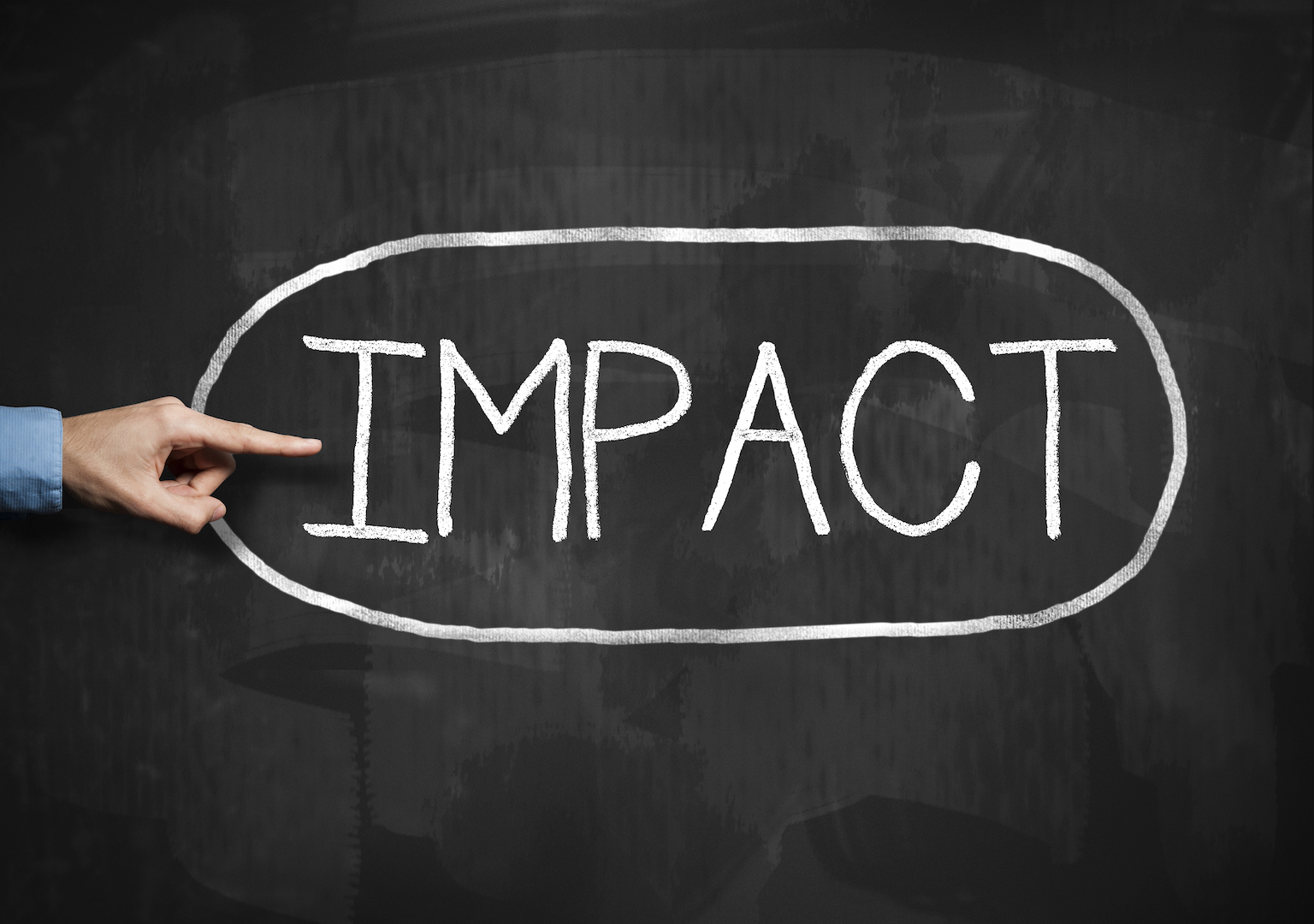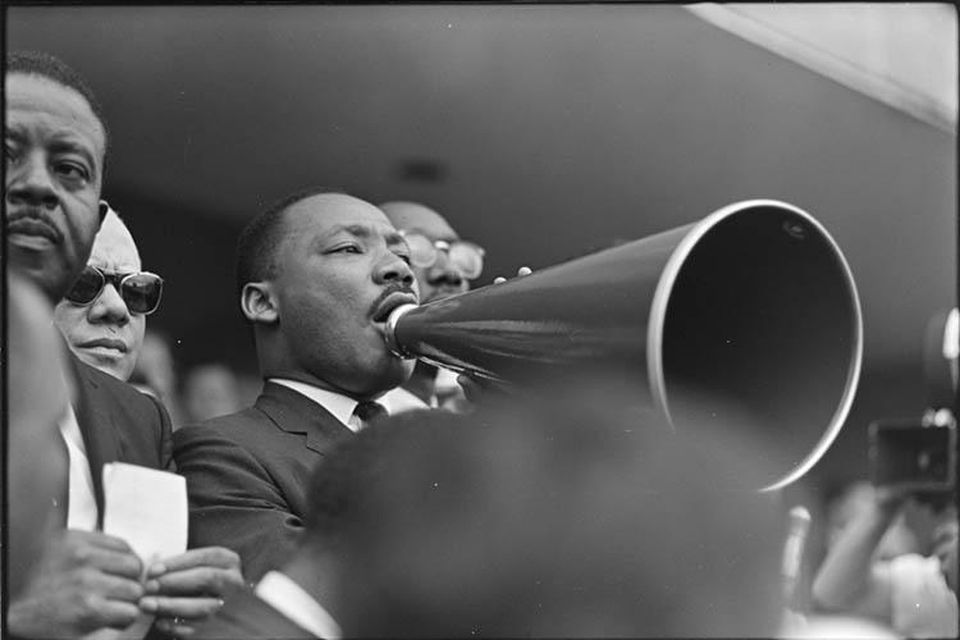News
Summer Reading! J.P. Morgan Picks Engine of Impact for Its Annual Book List
Every summer, out of the thousands of nonfiction books published in the preceding year, the financial services giant J.P. Morgan selects 10 books to recommend to its clients. Today, the firm announced its 19th annual Reading List Collection, and Engine of Impact is among the titles honored by placement on the list.
In a video released in conjunction with the announcement, co-authors Bill Meehan and Kim Starkey Jonker expressed their pride in being so recognized.
To create the list, J.P. Morgan drew on nominations from its client advisors, who suggested hundreds of books for consideration. In its description of Engine of Impact, the firm observes that the book “provides actionable guidance for donors who seek to maximize the effectiveness of their giving, and nonprofit board members and executives who want to help their organizations achieve greater impact.”
An overview of the full list is available here.
Time for “Team of Teams”
In Engine of Impact, Bill Meehan and Kim Starkey Jonker offer this variation on an oft-quoted management bromide: “You are only as good as our people … and how you organize and lead them.” Social sector organizations today, the authors argue, must redouble their commitment not only to finding and retaining great people, but also to deploying them in ways that meet the dynamic needs of the Impact Era. An essential tool for doing so is an emerging model called “team of teams.”
In a recent article for Stanford Social Innovation Review, Meehan and Starkey Jonker explore the team-of-teams model at length and present a short case study of how Pratham, an education nonprofit in India, has adapted the model to conduct an ambitious, nationwide survey of children’s learning outcomes.
In addition, for their column on leadership for Forbes, Meehan and Starkey Jonker have written a new piece that summarizes the team-of-teams model and explains why it is becoming highly relevant to leaders in every sector. The model is as beneficial to employees as it is to the organizations that implement it. “[T]here are so many more opportunities for people’s career paths than were possible previously,” according Bill Drayton, who has pioneered the model at his organization, Ashoka.
You can find that piece, along with others written for the Forbes column, here.
Meehan and Starkey Jonker at 92Y in New York City
Next month, Bill Meehan and Kim Starkey Jonker will speak at the legendary 92nd Street Y (known as 92Y)—the organization that launched the #GivingTuesday movement. The event will occur on Thursday, June 28, at 7 p.m. at the 92Y facility in New York City. Tickets for the event are on sale now.
Drawing on their work in Engine of Impact, Meehan and Starkey Jonker will deliver actionable guidance that nonprofit executives, board members, staff members, and donors can use to jumpstart their own performance and to achieve extraordinary results for their organization.
Kathy Spahn, CEO of the award winning nonprofit Helen Keller International, will interview the authors, and Maya DiRado—a four-time Olympic medalist in swimming—will introduce Meehan, Starkey Jonker, and Spahn. In her remarks, DiRado will describe how Engine of Impact has inspired and equipped her to increase her own impact in the social sector.
Learn more about the event here.
Impact, Service, and Other Core Principles (Forbes Column)
Building on their recent Forbes article about two figures who helped shape their core principles as leaders, advisors, and researchers in the nonprofit sector, Bill Meehan and Kim Jonker use their new piece for Forbes to outline those principles. In the article (“Our Core Principles: High Impact at Scale, Yes, but Serve Others Always”), they write:
Our primus inter pares core principle is “high impact at scale.” Even as we place this principle first among equals, we are always careful to point out that we find, and honor, deep human dignity in any authentic effort to support, serve or simply be present with another person in need. This life principle to “serve others” is an essential idea in virtually every faith and wisdom tradition. It represents our fundamental obligation to each other, the foundational element in any community—our only true hope in our increasingly borderless, diverse world.
In conjunction with the new article, Meehan and Jonker have also created a handy one-page summary of the seven elements of strategic leadership. As they explain in that piece, those elements are prerequisites for achieving high impact at scale.
You can read the column here, and you can access the “seven essentials” summary here.
Creating Engines of Impact in Africa
Last week, Kim Starkey Jonker moderated a panel at the 2018 Global Philanthropy Forum (GPF) conference in Redwood City, Calif. The panel, “Building an Ecosystem: When Generosity Meets Strategy,” focused on the growth of philanthropy in Africa. In introducing and leading the session, Starkey Jonker drew both on her work at King Philanthropies, which sponsors ambitious programs in Africa, and on her and Bill Meehan’s work for Engine of Impact, which explores (among other topics) the nexus of generosity and strategy.
A post at the GPF website summarizes the session:
Strategy is a planned set of actions that enable you to achieve your goals. However, many organizations in the social sector have strategies that lack focus and spread their resources too thin. Kim Starkey Jonker, president and CEO of King Philanthropies, sat down with Valerie Dabady, manager of the Resource Mobilization and Partnerships Department at the African Development Bank and Dikembe Mutombo, chairman and president of the Dikembe Mutombo Foundation, to discuss how philanthropists can effectively identify or build organizations with strong, targeted strategies. A former NBA player, Mutombo emphasized the importance of collaboration as a central part of strategy. “Anything you want to do in life, you have to understand you need to work as a team,” he said. Building on this, Dabady pointed out that knowing who to work with, and making the right partnerships for your organization is critical.
A complete video recording of the session appears below.
Encounters With Impact (Forbes Column)
In their latest column for Forbes—“How Two Figures Shaped Our Core Principles on Nonprofit and Philanthropic Leadership”—Bill Meehan and Kim Jonker each tell a story of engaging with a social sector leader who helped them define what it means to create a true “engine of impact.” Meehan discusses a chance meeting that he had many years ago with Bill Drayton (below left), who later founded Ashoka. Jonker, meanwhile, recalls encountering Roy Prosterman (below right), the founder of Landesa, while she was reviewing candidates for the inaugural Henry R. Kravis Prize in Leadership. (In a follow-up column, Meehan and Jonker will discuss the core principles that they hold today—principles that emerged in part under the influence of those two men.)
From Drayton, Meehan and Jonker write, Meehan “learned that the McKinsey [& Company] approach to fact-based, analytical problem-solving was applicable not only to business problems but, with some adaptation, to the problems faced by the social sector.” As for Prosterman, they write, he “became the first Kravis Prize winner, and in subsequent years other winners—Pratham, BRAC, and Helen Keller International, to name just a few—reinforced the views about mission, strategy, and scaling (among other essential topics) that [Jonker] began to crystallize” when she first learned about Landesa and its founder.
You can read the full column here.
Ready or Not: A New Article for Bridgespan
“For nonprofit organizations, the current moment should be the best of times—a time when they can tap into new sources of funding and when conditions are ripe to leverage that funding to maximum effect.”
So begins a new article by Bill Meehan and Kim Jonker that the Bridgespan Group has published at its website. The article, titled “Most Nonprofits Aren’t Ready for the Coming Impact Era,” draws on findings from the Stanford Survey of Leadership and Management in the Nonprofit Sector to show that most organizations in the sector are falling short of their potential.  To ensure that the current era will indeed be “the best of times” for nonprofits, these organizations must improve their performance in areas that range from board governance to strategy. Meehan and Jonker follow their note of warning with a note of optimism: “by working intentionally and proactively to master the essentials of strategic leadership, organizations can seize the tremendous opportunity presented by the Impact Era,” they write.
To ensure that the current era will indeed be “the best of times” for nonprofits, these organizations must improve their performance in areas that range from board governance to strategy. Meehan and Jonker follow their note of warning with a note of optimism: “by working intentionally and proactively to master the essentials of strategic leadership, organizations can seize the tremendous opportunity presented by the Impact Era,” they write.
The article is available (in both web and PDF formats) here.
Joining in Common Purpose (Forbes Column)
What do Helen Keller International, Landesa, Oregon Shakespeare Festival, and Positive Coaching Alliance have in common? These organization—and many others featured in Engine of Impact—are all exemplary nonprofits that show how people can come together in common purpose to deliver extraordinary social impact.
In the second post for their Forbes column, Bill Meehan and Kim Jonker evoke that ideal to make the case for the renewal and transformation of the American nonprofit sector. Titled “Our Call to Action: Joining Together for Social Impact,” the article notes that an immense intergenerational transfer of wealth is now under way in the United States. For that reason among others, Meehan and Jonker contend, the time is ripe “to refocus our nonprofit sector on impact, not just activity.”
You can read the article here.
Now at Forbes: A New Column on Leadership
Scaling up the message of a book, much like scaling up the impact of a nonprofit organization, depends on having the right platform to expand its reach. To help spread the ideas set forth in Engine of Impact, Bill Meehan and Kim Starkey Jonker have agreed to write a regular column for the Leadership section of the Forbes website. Every two weeks, they will post a brief, to-the-point article that leverages content from the book to shed light on current events and to offer practical insight for leaders.

The first entry in the series is a post titled “Philanthropists, Nonprofit Executives, and Board Members Must Awaken to the Dawn of the Impact Era.” It draws on recent developments in and around the social sector—the response to Hurricane Harvey, the decision by the Metropolitan Museum of Art in New York City to change its admission pricing policy, a new study on race and mobility in the United States—to illustrate the quest by nonprofit leaders to sharpen their focus on impact.
Meehan and Starkey Jonker argue that we are entering a new era—the Impact Era—and that nonprofits must rise to the occasion:
[T]he world of charitable giving is rapidly transforming as high-net-worth individuals turn their attention from the challenge of creating wealth to that of creating social impact. … The scale, timing, and focus of the portion of global wealth that will go to philanthropy in this era remain to be determined and are very much subject to influence—which is why nonprofits and their leaders must prepare themselves for this moment by earning the right to receive and leverage philanthropic investment.
You can access all posts for the Forbes column here.
Two Reviews (Associations Now and Bob Morris)
A pair of writers who closely monitor new books on organizational leadership have posted notices about Engine of Impactthat highlight its value for nonprofit executives.
Kristin Clarke, books editor for Associations Now, covers Engine of Impact in the lead item of her column on new titles related to association management. She notes that the book outlines “steps to running a well-oiled nonprofit” and calls it “[a] CEO conversation starter and [a] thoughtful addition to the business literature.” (Last fall, Associations Now published an article on nonprofit board orientation that cited the book prominently.)
 At Blogging on Business, Bob Morris cites his own experience in nonprofit organizations and praises Bill Meehan and Kim Starkey Jonker for “provid[ing] an abundance of valuable information, insights, and counsel.” He concludes his review by analyzing the best audience for the book:
At Blogging on Business, Bob Morris cites his own experience in nonprofit organizations and praises Bill Meehan and Kim Starkey Jonker for “provid[ing] an abundance of valuable information, insights, and counsel.” He concludes his review by analyzing the best audience for the book:
Who will derive the greatest benefit from the material? In my opinion, three groups: senior-level executives in all organizations in the nonprofit sector, senior-level executives in organizations in the for-profit sector who are responsible for increasing the impact of initiatives in the social sector; and decision-makers in capital sources that include VCs and banks as well as corporate and private foundations. For anyone in these groups, Engine of Impact is a must read.
Read the review by Clarke here and the review by Morris here.
Subscribe to receive updates on new content




